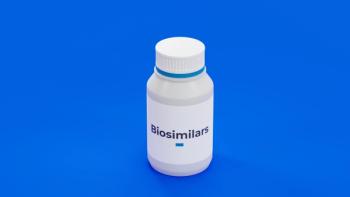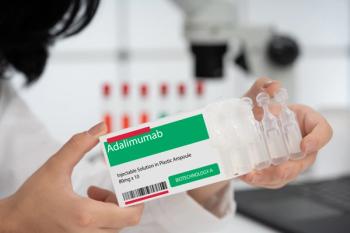
Glucagon-like peptide-1 (GLP-1) receptor agonists are widely known as treatments for type 2 diabetes, though some have been approved for indications beyond diabetes.

Glucagon-like peptide-1 (GLP-1) receptor agonists are widely known as treatments for type 2 diabetes, though some have been approved for indications beyond diabetes.

Christina Barrington, PharmD, vice president of pharmacy programs at Priority Health, discusses current disruptors in the marketplace and high-cost drugs.

Saira A. Jan, MS, PharmD, discussed a novel pilot program in New Jersey aiming to expand home infusion services in oncology.

Timothy O’Shea, MS, PharmD, discussed the growth of home infusion programs and how they benefit patients.

Kimberly Maxfield, PhD, discussed pharmacist’s role to aid patients when switching to a biosimilar

In this field, Marshall notes that pharmacists can help by building forecasts and assist with managing members’ care before and after gene therapy.

Biosimilars in the pharmacy benefit are as effective as their reference drug, but it’s important for the pharmacist to clarify this to patients.

The biosimilar landscape is growing, but the FDA should leverage analytical data to efficiently determine the quality of these products and propel them toward approval, according to a session at the Academy of Managed Care Pharmacy’s Nexus 2023 conference.

Approximately 96% physicians feel it is important to assess patients aged 60 years and older for cognitive impairment, but 48% of these patients have no had assessments from their physician.

The FDA is the only authority that can designate a biosimilar as interchangeable with its reference product, which requires that the product has similar clinical results for the same indication.

There are 3 main medication-related issues for mental health care, which includes polypharmacy, nonadherence to prescribed medication, and underutilization of medications.

Areas of focus for specialty medications include biosimilars, cancer treatments, and drugs across disease states such as inflammatory conditions, HIV, and multiple sclerosis.

Jensen notes that although she expects there will be a lot of FDA approvals in 2023 and 2024, there likely will not be another biosimilar “boom” until 2025.

Jeff J, Mclntyre, MA, Vice President of Liver Health Programs, Global Liver Institute, discussed the clinical and economic burden of NASH

Medically integrated dispensing specialty pharmacies can connect patient medical and pharmacy records to improve medication adherence and help patients to safely stay on them for longer.

Artificial intelligence and machine learning can significantly benefit managed care pharmacy, specifically in contract reading and interpretation.

Obesity is a chronic disease comprised of dysregulated adipose tissue, increasing the risk of developing serious health conditions, and requires more than just losing weight.

In a recent study, 97% of patients had to wait a day before receiving their prescription, and this may worsen the risk of hospitalization.

Reform efforts to consider how health care plans may capitalize on disclosures, balancing out-of-pocket spending access, and how pharmacists can help plan members with the increased transparency of pharmacy benefit managers.
![[Technology can] aid and support to improve clinicians' workload and to reduce burnout, [which] is vital to retaining clinicians in many facilities. Image Credit: © woravut - stock.adobe.com](https://cdn.sanity.io/images/0vv8moc6/pharmacytimes/cfd2075f5bc7a307a231a88b9692a62f465d2ca3-530x396.png?w=350&fit=crop&auto=format)
These pharmacies can use electronic medical records to work more directly with providers, monitoring adverse medication effects and assessment schedules and being more tuned into patient needs.

Kimberly Westrich, MA, discussed value assessment tools and how they can help make key decisions in health care spending.

Although all legislation is currently on hold in Congress, there are important actions under consideration for pharmacy, including digital therapeutics, access to care, and health care disparities.

Jennifer Mathieu, MA from the Academy of Managed Care Pharmacy (AMCP) discusses what to expect from AMCP Nexus 2023 and some of the sessions she is looking forward to.

Pharmacy Times will be providing exclusive session coverage and interviews with presenters for the Academy of Managed Care Pharmacy Nexus 2023 conference.

Presenters at the AMCP Nexus conference explore outcomes data and whether these medications should be substituted for reference products more frequently.

A presentation at the AMCP Nexus conference focuses on the health care disparities and pharmacotherapy options for gender affirmation.

Presentation at the AMCP Nexus conference focuses on midterm election outlook and a plug for the Pre-approval Information Exchange Act.

Keynote speaker at the AMCP Nexus conference discusses recent FDA approvals and those scheduled over the next year.

Panelists at the AMCP Nexus conference share tips on new opportunities for students and career-changers looking to forge a new path.

Panelists at the AMCP Nexus conference discuss the burden of undertreated and untreated chronic kidney disease.